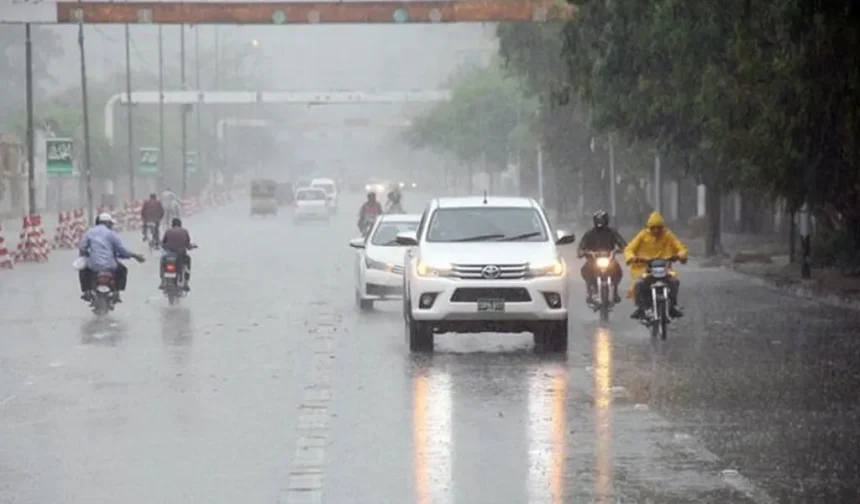(CTN News) – Due to the National Disaster Management Authority’s (NDMA) forecast that heavy rainfall is likely over the next three days, a severe weather alert has been issued for several places in Pakistan.
Rain was predicted by the NDMA, so this is why.
Pakistan’s NDMA has been affected by the advisory issued. In addition to the divisions of Azad Kashmir, Malakand, Hazara, and Gujranwala, the alert also includes the divisions of Potohar, Mardan, Lahore, Faisalabad, Sahiwal, Bahawalpur, Multan, Rajanpur, Mirpur Khas, Sukkur, Karachi, Hyderabad, Umarkot, Badin, Thatta, Tharparkar, DI Khan, Koh-e-Sulaiman range, Zhob, Ziarat, Kalat, and Sibbi.
It is projected that each of these divisions will get an additional quantity of precipitation throughout the course of the period. A mention of the Sibbi divisions is also included in the notices that have been sent.
A warning has been issued by the NDMA authority to the provincial disaster management authorities as well as other institutions that are relevant to the situation, according to a spokesperson for the authority.
The notice states that the authority has issued the warning. The notification was distributed by those who held positions of power.
Shehbaz Sharif, the Prime Minister of Pakistan, has issued an instruction to the National Disaster Management Authority (NDMA) to take fast action in order to protect both lives and property in the event of the anticipated extreme weather conditions.
This decision was made in response to the weather conditions that were anticipated to take place, and it was made in response to those possibilities.
The Prime Minister has issued orders that include working closely with the provincial administrations, as well as the provinces of Gilgit-Baltistan and Azad Kashmir, in order to successfully handle the crisis. These directives are part of his efforts to properly manage the crisis.
NDMA guidelines will help him handle the situation effectively.
He has underlined the importance of putting preventative measures into practice, such as regulating NDMA drainage in Islamabad, ensuring citizens have access to utilities, and keeping continuous monitoring by the entities that are responsible for doing so.
He suggested that these steps should be implemented. It has been brought to the attention of the Prime Minister of Pakistan, Sharif, that the implementation of these safeguards is something that is absolutely inevitable.
As a result of the instructions that he has given, he has ensured that appropriate institutions and continuous monitoring are in place to guarantee that collaborative efforts are being undertaken.
There are a lot of crucial rules, some of which include the prompt evacuation of populations from low-lying areas, the NDMA provision of medical staff, medications, and timely treatment, immunisations, and the assuring of the availability of water pumps and machinery.
These are just some of the rules that are important. Every single one of these recommendations is necessary.
For the purpose of ensuring that the National Disaster Management Agency (NDMA) would be able to deliver a comprehensive response to the anticipated rainfall, a number of responsibilities have been assigned to the agency.
This category includes a number of requirements, two of which are the provision of assistance to emergency services and the encouragement of coordinated actions to prevent possible hazards caused by severe weather.
At the same time as it is strongly recommended that the residents keep a certain level of awareness regarding the weather conditions, it is also strongly urged that they follow with the directives that are provided by the local authorities in order to ensure that they are safe during the upcoming severe rains.
In order to ensure that individuals take the necessary precautions to safeguard themselves, this behaviour is utilised.
SOURCE: STN
SEE ALSO:
Erdogan says Turkey may invade Israel to Rescue Palestinians
Thailand Adds 5 Cultural Sites to Unesco Tentative List
Thailand invites Freelancers and Digital Nomads with New Long-term Visas














